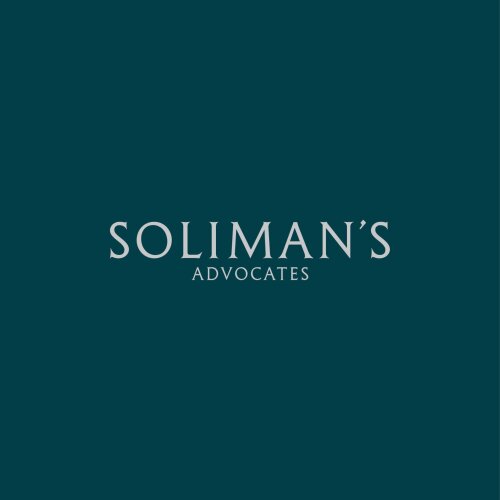Best Intellectual Property Lawyers in London
Share your needs with us, get contacted by law firms.
Free. Takes 2 min.
List of the best lawyers in London, United Kingdom
United Kingdom Intellectual Property Legal Questions answered by Lawyers
Browse our 1 legal question about Intellectual Property in United Kingdom and read the lawyer answers, or ask your own questions for free.
- A website published my thesis as their work
- I finished my master degree In 2013 and I found a writing service for students website that did minor changes to my thesis and published as their own in 2017
-
Lawyer answer by Δικηγορικό Γραφείο Ηλία Τζερεμέ - Ilias Tzeremes Law Office
According to Greek Intellectual Property Law, you shall claim a huge compensation, because only the author maintains the right to manage his/her thesis. Moreover, braking Copyright constitutes a felony, punishable with up to 15 years of imprisonment
Read full answer
About Intellectual Property Law in London, United Kingdom
Intellectual Property (IP) law in London, United Kingdom, governs the rights of individuals or corporations over their creations. These can be inventions, literary and artistic works, designs, symbols, names and images used in commerce. There are four types of intellectual property rights: patents, trademark, copyright, and design rights. More complex aspects include database rights, confidentiality, and trade secrets, amongst others. As London is a global hub for many industries and a significant marketplace, IP law plays a key role in protecting and preserving the value of both tangible and intangible property.
Why You May Need a Lawyer
Engaging a lawyer can be beneficial in various situations related to Intellectual Property. If you're an artist, writer, musician, designer, startup, or established enterprise, you might require a lawyer to ensure your work is duly protected from infringement. Lawyers can also assist in drafting and reviewing legal documents related to Intellectual Property, such as non-disclosure agreements, licensing contracts, etc. In cases of potential infringement, a lawyer can guide you in pursuing legal action or dispute resolution.
Local Laws Overview
The key aspects of the Intellectual Property laws in London, UK, are based on both national and European legislation. The primary IP laws include the Patents Act 1977, Trade Marks Act 1994, Copyright, Designs and Patents Act 1988, among others. These laws protect the diverse forms of IP such as registering trademarks, applying for patents, protection of copyright and design rights. The law also provides enforcement measures like litigation if any violation happens.
Frequently Asked Questions
1. How long does Intellectual Property protection usually last?
It depends on the type of Intellectual Property. Patents typically last 20 years, while copyright protection lasts for the life of the creator plus 70 years. Trademarks can be renewed indefinitely if they remain in use and pay the renewal fees.
2. How does Brexit affect Intellectual Property rights?
Despite Brexit, most of the existing IP laws based on the EU legislation remained in place. However, certain EU-specific rights ceased to exist in the UK from the end of December 2020, and separate UK rights were automatically granted instead.
3. Can someone use my patented invention without my permission?
No, patent law forbids others from making, using or selling your invention without your explicit permission. Legal action can be taken against such users.
4. What is the process for applying for a trademark?
The process includes searching for existing trademarks, filing an application with the Intellectual Property Office, and then waiting for it to be examined. Once approved, it is published in a journal for opposition purposes. If successful, you will receive a certificate of registration.
5. Can I protect a business idea under Intellectual Property laws?
Intellectual Property law does not protect business ideas per se. However, you may be able to protect the way your idea is expressed or implemented, such as through patents, trademarks, copyrights or design rights.
Additional Resources
If you require further information or resources related to Intellectual Property in London, you can refer to the UK Government's Intellectual Property Office, The Chartered Institute of Patent Attorneys in the UK and The Chartered Institute of Trade Mark Attorneys. These sources offer comprehensive information about IP rights and regulations.
Next Steps
If you require legal assistance regarding Intellectual Property in London, begin by seeking help from a legal professional specializing in IP. They can provide advice tailored to your situation. Ensure you understand your rights, responsibilities, and potential risks before taking any legal steps. Protecting your intellectual property is a proactive measure and can serve as a defensive strategy against potential infringement.
Lawzana helps you find the best lawyers and law firms in London through a curated and pre-screened list of qualified legal professionals. Our platform offers rankings and detailed profiles of attorneys and law firms, allowing you to compare based on practice areas, including Intellectual Property, experience, and client feedback.
Each profile includes a description of the firm's areas of practice, client reviews, team members and partners, year of establishment, spoken languages, office locations, contact information, social media presence, and any published articles or resources. Most firms on our platform speak English and are experienced in both local and international legal matters.
Get a quote from top-rated law firms in London, United Kingdom — quickly, securely, and without unnecessary hassle.
Disclaimer:
The information provided on this page is for general informational purposes only and does not constitute legal advice. While we strive to ensure the accuracy and relevance of the content, legal information may change over time, and interpretations of the law can vary. You should always consult with a qualified legal professional for advice specific to your situation.
We disclaim all liability for actions taken or not taken based on the content of this page. If you believe any information is incorrect or outdated, please contact us, and we will review and update it where appropriate.
Browse intellectual property law firms by service in London, United Kingdom
London, United Kingdom Attorneys in related practice areas.














